Ganoderma Coffee (Reishi Coffee) Reviews
Have you heard of Ganoderma coffee “Reishi coffee”? This unique blend has been gaining popularity in recent years, capturing the interest of coffee lovers and those who prioritize their wellness.
In this article, we will explore the potential health benefits of Reishi coffee, discuss important side effects to consider, offer tips for selecting the finest Reishi coffee, provide three delicious Reishi coffee recipes, and recommend our top 3 favorite Reishi supplements to enhance your coffee.
If you’re intrigued by the idea of enriching your coffee experience with the potential for improved health, keep reading!
In this article:
What is Ganoderma Coffee?

Ganoderma coffee, also called “Reishi coffee”, combines the goodness of coffee with extracts from the Ganoderma lucidum mushroom, also known as “reishi” or “Lingzhi.” This medicinal mushroom, cherished in traditional medicine for centuries, offers potential health benefits[1]. It boosts immunity, contains less caffeine, and boasts higher nutritional value compared to regular coffee.
By blending premium coffee beans with Ganoderma mushroom extracts, a unique and flavorful brew is created. Enjoy the convenience and pleasure of experiencing its potential benefits in various forms like instant coffee, coffee mix, or organic coffee.
Health Benefits of Ganoderma
Ganoderma offers numerous health benefits as a functional food in traditional treatments. Here are some of the ways it can benefit you:
1. Strengthens your immune system
Ganoderma positively affects the genes in white blood cells, enhancing your immune system’s function and reducing inflammation[2].
2. Fights cancer
Ganoderma exhibits anti-cancer properties, combating various types of cancer cells, including breast, prostate, colorectal, and colon cancer[3].
3. Supports liver cell regeneration
Reishi mushroom spores promote liver cell regeneration, improving the liver’s detoxification abilities[4].
4. Abundant antioxidants
Ganoderma is packed with antioxidants that protect your body from free radical damage.
5. Boosts heart health
It raises “good” HDL cholesterol and lowers blood triglycerides, reducing the risk of heart disease[5].
6. Anti-aging effects
Studies suggest that Reishi may contribute to skin health, reducing the appearance of aging signs. Its antioxidant properties help protect against oxidative stress, a common cause of premature aging.
These are just a few of Ganoderma’s potential health benefits. Remember, further research is necessary to fully understand its impact on human health.
Ganoderma Coffee for Weight Loss

For individuals looking to manage their weight, Ganoderma coffee may offer a potential advantage. The combination of coffee and Reishi mushrooms may help promote weight loss by boosting metabolism and enhancing fat oxidation. Additionally, the caffeine content in coffee can provide a temporary boost in energy, which may aid in physical performance and calorie expenditure.
Here are some ways Reishi coffee can benefit your weight loss journey:
- Boosts energy and stamina: Ganoderma oxygenates your body, balances pH levels, and increases energy without the negative effects of regular coffee.
- Reduces fatigue: It can effectively reduce fatigue, helping you stay energized throughout the day.
- Aids in weight loss: Ganoderma coffee regulates blood sugar levels, curbing cravings and overeating. It also boosts metabolism, promoting fat burning.
While some people claim that Ganoderma coffee can help with weight loss, there is no conclusive evidence to support this claim. As with any supplement or dietary product, it is important to speak with a healthcare professional before consuming Ganoderma, especially if you have any underlying health conditions or are taking any medications.
What Are the Side Effects of Ganoderma?
While Ganoderma is generally safe to consume, some people may experience mild side effects. To minimize the risk of side effects, it’s best to start with a low dosage and gradually increase it. When using Reishi, it’s important to be aware of possible side effects[6]. Here are some common ones you may experience:
- Dry mouth
- Rashes
- Upset stomach
- Diarrhea
- Headache
- Itching
- Nausea
- Insomnia
It’s also worth noting that the caffeine in Reishi coffee can have its side effects, including:
- Acid reflux
- Frequent need to urinate
Remember, it’s important to consult with your healthcare provider for personalized advice based on your specific health conditions and needs.
Precautions
Here is an outline of some situations where your healthcare provider may advise against using Ganoderma:
- Severe allergic reaction: Avoid Ganoderma coffee if you have a severe allergy to G. lucidum, caffeine, or any components.
- Pregnancy or breastfeeding: Consult your healthcare provider to discuss the risks and benefits of Ganoderma during pregnancy or breastfeeding.
- Children: Talk to a pediatrician before giving Ganoderma to children.
- Adults over 65: Older adults should use caution as researchers need to understand the effects and safety of Ganoderma better.
- Liver problems: Avoid G. lucidum if you have a liver condition, as it may worsen existing problems.
- Gastroesophageal reflux disease (GERD): Limit caffeine intake if you have GERD, as it can potentially worsen symptoms.
Remember, it’s always a good idea to consult with your healthcare provider to discuss any potential interactions with food, other supplements, or medications.
Dosage
When it comes to determining the right dosage of Ganoderma for you, several factors come into play, including your tolerance and the effects you desire. To ensure a safe and effective experience, it is generally advisable, to begin with a lower dose and then gradually increase it over time.
Reishi mushroom contains bioactive compounds like beta-glucan, polysaccharides, and ganoderic acids. These compounds offer various health benefits. Here are some important points to consider when it comes to the recommended dosage:
- Recommended daily dose: For whole-food mushroom powder with a 20% beta-glucans content, the recommended daily dose is 2,000mg (2g). This provides approximately 400mg of polysaccharides that support your immune system.
- Chinese Pharmacopoeia recommendation: According to the Pharmacopoeia of the People’s Republic of China, the recommended daily dosage of reishi extract ranges from 6 to 12g.
When considering the use of Ganoderma, it is important to follow the recommendations provided by your healthcare provider or the instructions on the product label. This ensures that you are taking it in a manner that aligns with your specific needs and goals.
How to Choose The Best Ganoderma Coffee
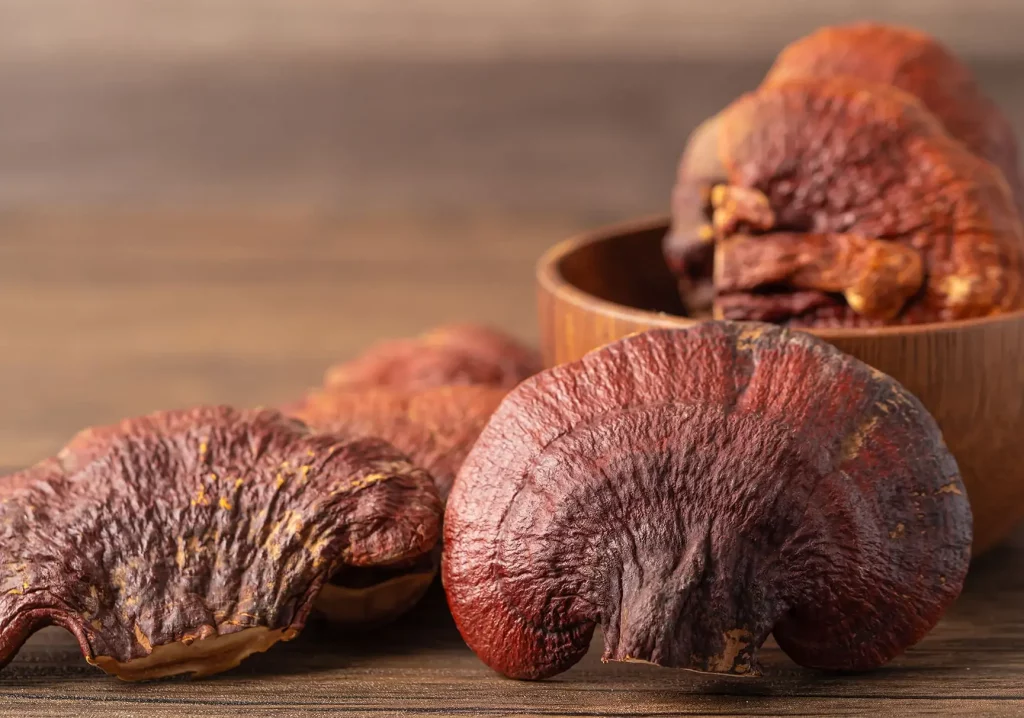
Choosing high-quality Ganoderma coffee is crucial because of the many options available. Prioritizing the quality of your mushroom extracts is vital to maximize the benefits of your Ganoderma coffee. To ensure top-notch ingredients free from pesticides and contaminants, it’s a good idea to check if your mushroom supplement manufacturer relies on USDA-certified organic mushrooms.
Many Reishi mushroom supplements in the market opt for cheaper substitutes, such as mycelium grown on grain substrates, instead of genuine reishi mushrooms. These substitutes often contain more starch filler and lack the immune-boosting beta-glucans found in authentic reishi mushrooms. To ensure the highest quality, we prefer to use reishi extract powder for making ganoderma coffee at home, allowing us to achieve the best results.
In the table below, we compare the ratios of alpha-glucans and beta-glucans in extracts made from mushrooms vs myceliated grain:
| Mushroom Extracts | Myceliated Grain | |
| Alpha-Glucans | 70% | 30% |
| Beta-Glucans | 80% | 20% |
These percentages illustrate the significant disparity in the composition of alpha-glucans and beta-glucans between mushroom extracts and myceliated grain extracts, highlighting the superior nutritional value and immune benefits provided by mushroom-derived extracts.
How to Incorporate Ganoderma Coffee into Your Diet
Adding ganoderma coffee to your daily routine can be a simple and enjoyable process. You can start by substituting your regular coffee with Ganoderma coffee or by adding Reishi mushroom extract to your favorite coffee, or drinks. Here are a few recipes to get you started.
Ganoderma Coffee Recipes
Relaxing Reishi Mushroom Latte
This creamy and delicious coffee includes Reishi mushroom powder, which helps support longevity and helps to reduce physical and emotional stress.
Ingredients
Instructions
- Combine all ingredients in a blender and blend until smooth. Serve immediately.
Coconut Ganoderma Ginger Coffee
This coffee contains Reishi mushroom powder and ginger, which can help support the adrenal glands.

Ingredients
Instructions
- Combine all ingredients in a blender and blend until smooth. Serve immediately.
Remember to experiment with different recipes and find the preparation method that suits your taste preferences.
Reishi Coffee Smoothie
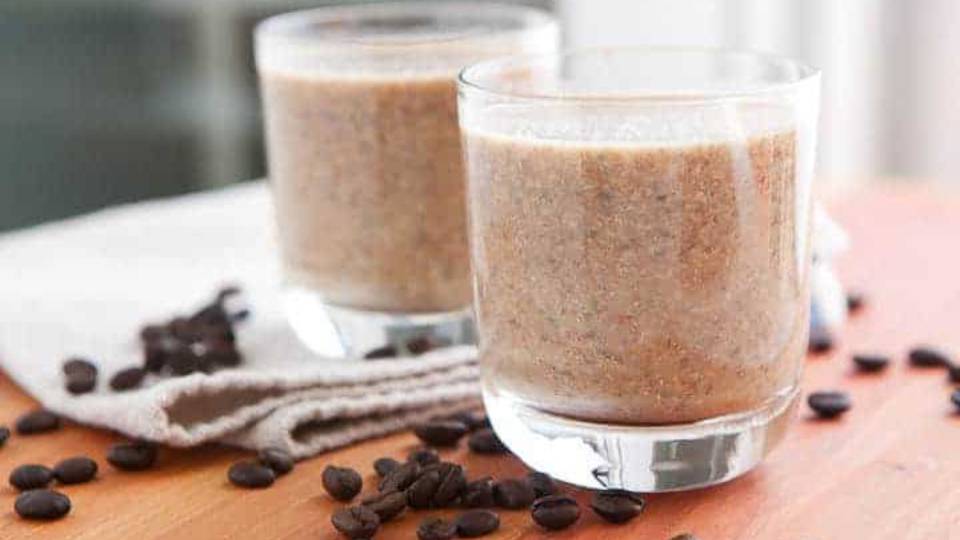
Ingredients
Instructions
- Add all ingredients to a blender and blend until smooth.
- Pour into a glass and enjoy!
How to Store Reishi
To maintain the quality and freshness of Ganoderma, proper storage is crucial. To maintain the quality and freshness of Ganoderma, store Reishi products in a cool, dry place, away from sunlight and moisture, and seal them in an airtight container. By sealing the product in an airtight container, you can extend its flavor and potency. Follow these guidelines to preserve the goodness of your Ganoderma products.
The Science Behind Ganoderma Coffee (Reishi Coffee)
While researchers continue to investigate the health benefits of Ganoderma Coffee, several scientific studies have already explored its potential effects. These studies have focused on the examination of bioactive compounds found in Ganoderma, such as beta-glucans and triterpenes, and how they can potentially impact various aspects of health. Further research is necessary to fully understand Ganoderma’s effects on human health. Scientists are actively working to provide more insights into the potential benefits of Reishi coffee.
Ganoderma Supplements: Our Top 3 Picks
Organo Gold Gourmet Black Ganoderma Coffee
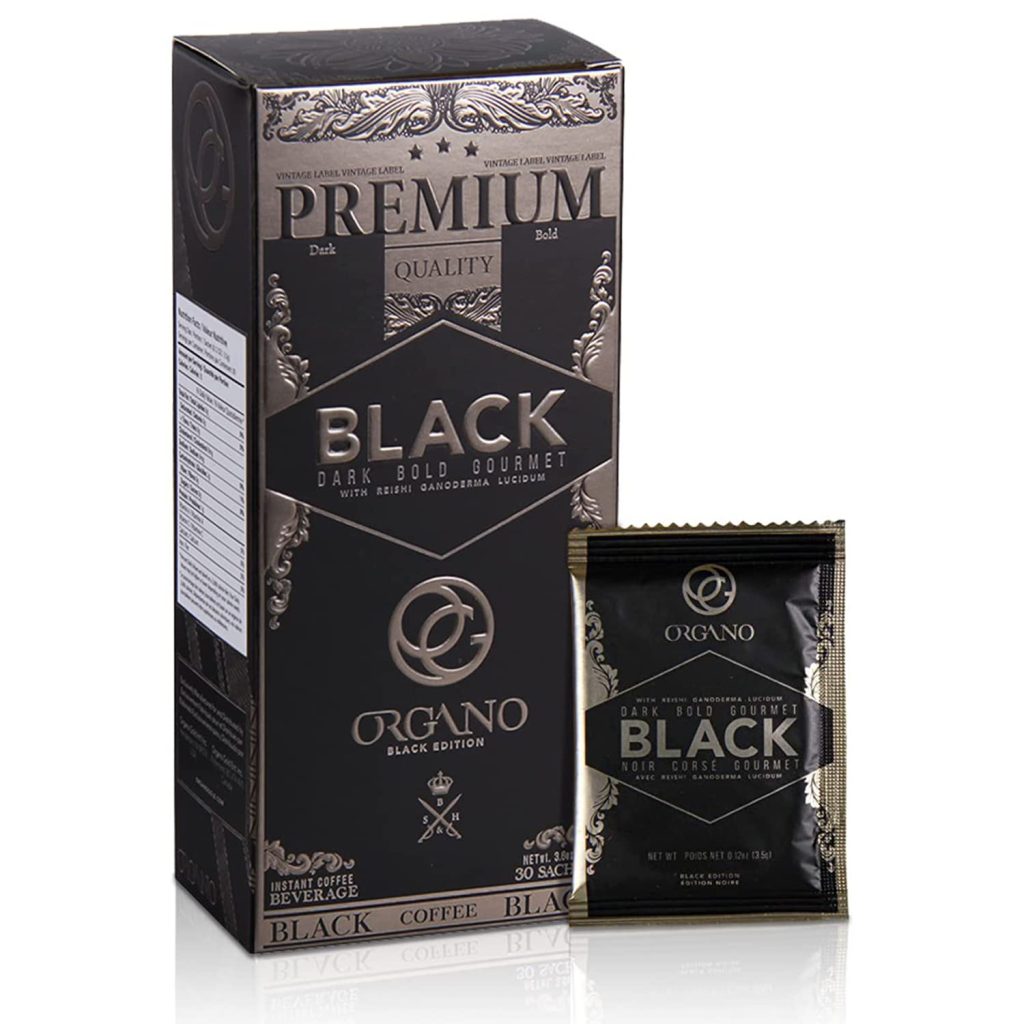
- Certified Organic Ganoderma
- Supporting the immune system & boosting energy
- Improving blood circulation
- Less Caffeine
- Ready-to-brew coffee
- Help to promote a healthy acid-base balance
Real Mushrooms Reishi Extract Powder
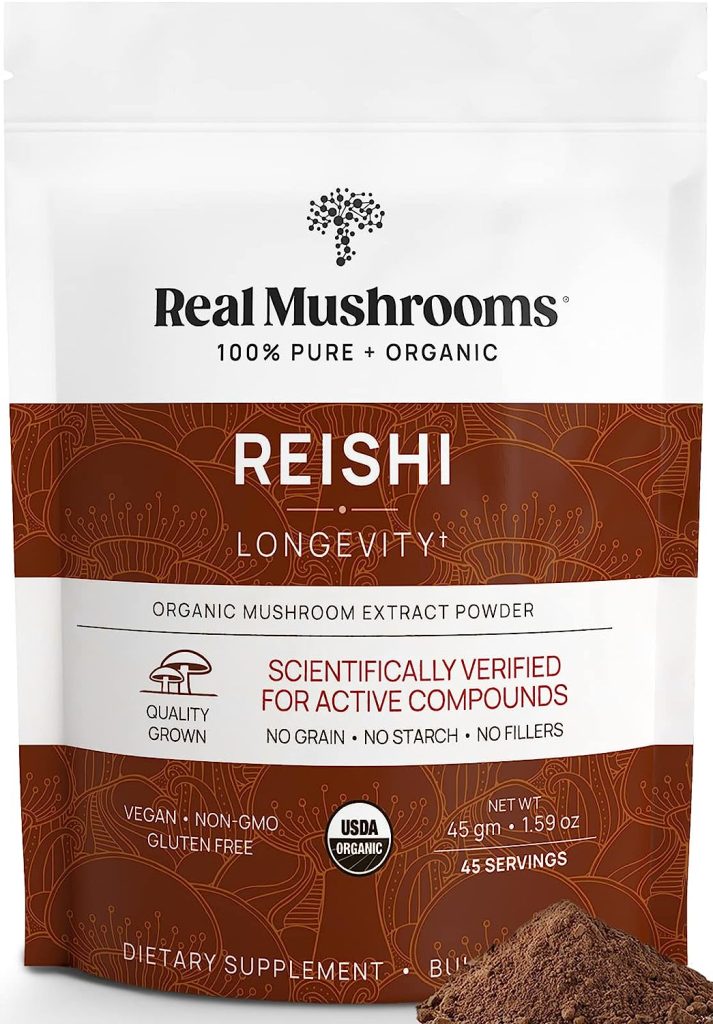
- High-Quality and 100% Pure Mushroom Extract
- Mood, Sleep, & Immune Support
- Verified Beta-Glucans
- Easy to Incorporate
- Organic and Vegan
- Expertise and Commitment
- No Grain Fillers
OM Reishi Mushroom Powder
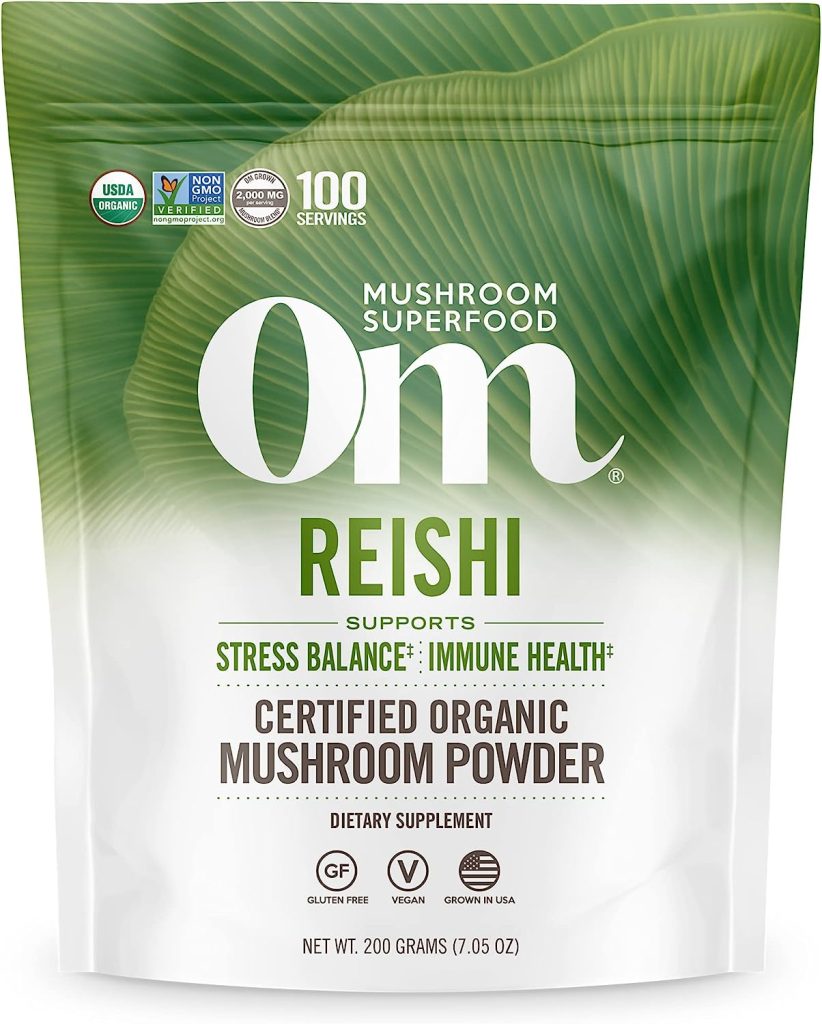
- Natural Adaptogen for Balance
- Full Spectrum Immune Support
- Adaptogen, Stress & Immune Support
- Cardiovascular Support
- Grown in the USA with Quality Assurance
FAQs
What is The Benefit of Ganoderma Coffee?
The potential benefits of Ganoderma coffee such as increased energy and stamina, reduced fatigue, potential aid in weight loss, neutralization of harmful effects of caffeine, and potential immune-boosting properties. However, scientific evidence is limited, so it’s essential to use it as part of a balanced diet and not rely solely on it for health benefits.
What Are The Side Effects of Ganoderma?
Some possible side effects of Ganoderma may include dizziness, dry mouth, itchiness, nausea, rash, sleeping problems, stomach upset, acid reflux, and frequent need to urinate. It’s important to note that these side effects are not experienced by everyone, and consulting with a healthcare provider is recommended for personalized guidance.
Does Ganoderma Coffee Help You Sleep?
Ganoderma coffee is not typically used as a sleep aid. It may have energizing effects due to the caffeine content in coffee. If you’re looking to improve sleep, it’s advisable to avoid caffeine-containing drinks like coffee, especially in the hours leading up to bedtime, as they can interfere with sleep.
What is Ganoderma black coffee?
Ganoderma black coffee is a type of coffee that contains Ganoderma, also known as reishi mushroom. It is a blend of high-quality coffee beans and Ganoderma extract. This coffee offers a unique flavor and aroma, along with potential health benefits associated with Ganoderma, such as immune support and antioxidant properties.
Summary
To sum it up, Ganoderma coffee is a special type of coffee infused with Ganoderma, also known as Reishi or Lingzhi mushrooms. It is believed to offer a range of health benefits, including immunity enhancement, weight loss support, fatigue relief, memory improvement, and increased energy and stamina. The inclusion of Ganoderma extracts helps neutralize the potentially negative effects of caffeine, making it a healthier choice. In summary, Ganoderma coffee is a fascinating alternative health remedy worth exploring if you’re curious about natural remedies.
References
1. Antioxidant, antibacterial, antitumor, antifungal, antiviral, anti-inflammatory, and nevro-protective activity of Ganoderma lucidum: An overview. Retrieved from https://www.ncbi.nlm.nih.gov/pmc/articles/PMC9353308/
2. Ganoderma lucidum polysaccharide modulates gut microbiota and immune cell function to inhibit inflammation and tumorigenesis in colon. Retrieved from https://pubmed.ncbi.nlm.nih.gov/34119183/
3. Ganoderma lucidum Polysaccharides as an anti-cancer agent. Retrieved from https://www.ncbi.nlm.nih.gov/pmc/articles/PMC6624854/
4. Protective Effect of Ganoderma (a Mushroom with Medicinal Properties) Against Various Liver Injuries. Retrieved from https://www.tandfonline.com/doi/full/10.1081/FRI-200040586
5. Reishi, Ganoderma lucidum and Ganoderma tsugae: Bioactive substances and medicinal effects. Retrieved from https://www.tandfonline.com/doi/pdf/10.1080/87559129509541025?needAccess=true
6. Studies on Ganoderma lucidum. I. Efficacy against Hypertension and Side Effects. Retrieved from https://www.researchgate.net/publication/19068043_Studies_on_Ganoderma_lucidum_I_Efficacy_against_Hypertension_and_Side_Effects

